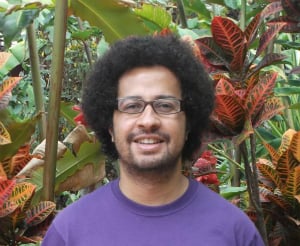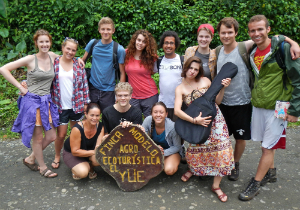Why is language learning and cultural immersion important to you?

Gabriel: There are as many diverse languages and cultures in the world as there are diverse people. Learning a new language and immersing in different cultures are key aspects to expanding your views and your understanding of the world. Learning a language is more than new vocabulary and grammar. Language is reflected in culture and culture is reflected in language.
Cultural immersion helps a person grow. When experiencing a new culture through integration and participation in that culture’s daily life, people have the potential to appreciate life in different ways. By being in contact with new people, food, music, dances, arts, traditions, beliefs and behaviors – all of which are among the most evident features of a culture – one learns to respect it and has a chance to delve deeper into it, which is often a different interpretation of life and the environment.
What unique qualities does your company possess?
Gabriel: Not only does ICADS offer programs that can help students learn about Costa Rican language and culture, but it also offers an opportunity to think critically about the world today. Students from the United States often have difficulties accessing holistic information about the history and current situation of the relations between Latin America and the United States.
Students that come to our institution will be able to work with a great variety of local actors involved in different projects of different areas such as conservation, social justice, and alternative development models.
What does your home-country's culture value that is taught in your program?
Gabriel: Costa Rica is a unique country in Latin America. It has achieved important advances in terms of social justice and opportunities to its citizens that most other countries of the region don’t have. Costa Ricans value solidarity a lot, and that is reflected in some of its more important institutions. Although this is believed to be one the core principles of our society, many people think this is starting to change due the country’s gradual immersion into the globalized economic world that values competition more than anything else.

Others challenge the idea of solidarity in Costa Rica and think that it is just a myth; this is supported by historical racial tensions in a country that has multiple ethnic backgrounds but that has been ruled by direct descendants of Europeans since its independence. There are conflicting interpretations of the country’s history and present, and they are strongly linked to cultural values. Students have a chance to analyze the uniqueness of Costa Rica and complement it with a study and visit to our neighboring country, Nicaragua.
What language have you always wanted to learn and why?
Gabriel: I’ve always wanted to learn new languages. My first language is Spanish, so English is my second. I started learning English since high school through exposure to music and an interest on the culture of English speaking countries. Then I went to college where I got my Bachelor’s Degree in English as a Second Language.
While studying English, I also started learning French and Portuguese. Currently I’m more interested in improving my Portuguese skills since Brazil is country I would really like to visit and spend some time there. I believe it is a country with a rich, diverse culture, and its influence on the Latin American region will grow in the coming years.